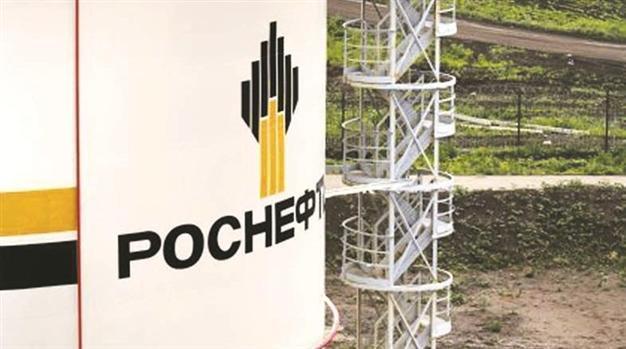US sanctions fuel worries for Russia-linked oil firms
LONDON - The Associated Press
 U.S. sanctions targeting the president of Russia’s largest oil company could complicate the operations of Western oil companies with important investments in Russia, such as BP and Exxon.
U.S. sanctions targeting the president of Russia’s largest oil company could complicate the operations of Western oil companies with important investments in Russia, such as BP and Exxon.The sanctions target only Igor Sechin, the president of Rosneft, and not the company itself. That means BP, Exxon and others will be able to continue to work with Rosneft, one of the world’s biggest oil companies, to explore for and produce oil and gas. For now.
Analysts are worried that the sanctions by the U.S. against Sechin are a prelude to tougher ones against Rosneft. That could force Western oil companies to abandon or suspend their partnerships and some very ambitious oil exploration plans.
Russian President Vladimir Putin issued a warning on the late hours of April 29 that Western companies could eventually risk being shut out of Russia’s energy sector.
Putin said he saw no reason for Russia to take retaliatory steps now against the U.S. and European Union, as he said the Russian government has proposed.
But “if something like this continues, then of course we will need to think about who works and how they work in the Russian federation in key sectors of the Russian economy, including the energy sector,” Putin said.
Mutual dependence
BP, based in London, owns a 20 percent stake in Rosneft. ExxonMobil, based in Irving, Texas, has a broad agreement with Rosneft to explore for oil in the Russian arctic and across a wide region of western Siberia. Eni of Italy and Statoil of Norway also have deals with the Russian company.
Western investor-owned oil companies and Rosneft, which is controlled by the Kremlin, need each other. These companies are in a constant struggle to find more oil and gas to replace what they produce and sell every day. Russia is one of the few countries in the world that harbor vast reserves of untapped hydrocarbons.
But much of Russia’s remaining oil and gas is expensive and difficult to reach, found either in the harsh climate of Arctic seas or trapped in tight rock onshore. Western companies have the capital and the technical expertise to help Rosneft produce that oil and gas - and generate cash that helps the Russian government fund its operations.
Adnan Vatansever, a senior lecturer at the Russia Institute at King’s College London, estimates that half of Russia’s federal revenue comes from oil and gas sales.
Targeting Sechin, a Putin confidante, is seen as a warning shot, signaling that the West could also go after Russia’s biggest companies if Moscow doesn’t help to resolve the crisis in Ukraine.
At the same time, Western governments also would prefer to avoid sacrificing important investments made by their own companies, or to disrupt oil and gas supplies in a way that would push energy prices higher around the world.
















